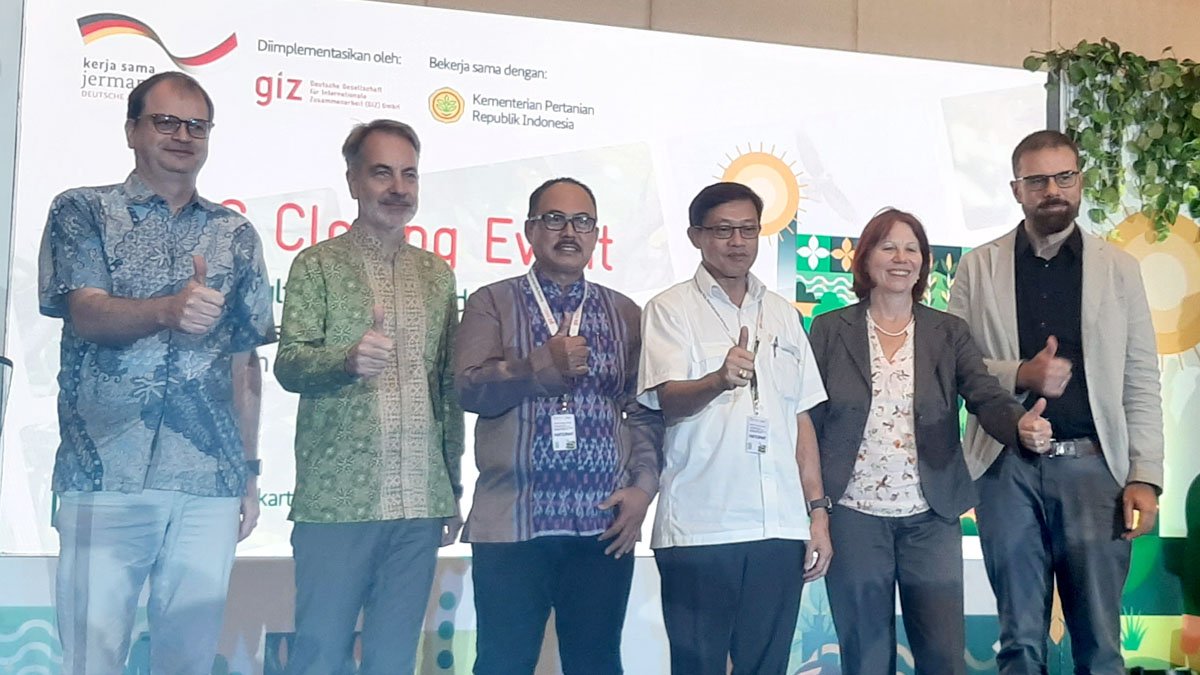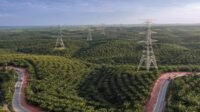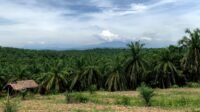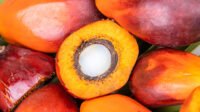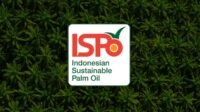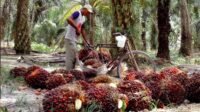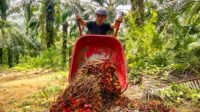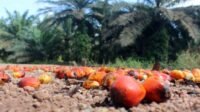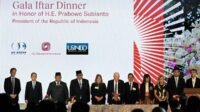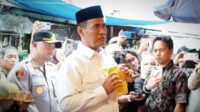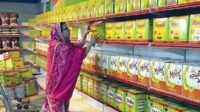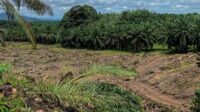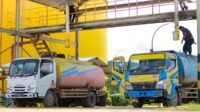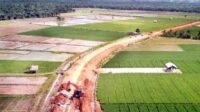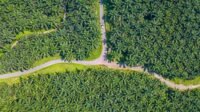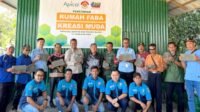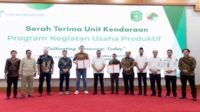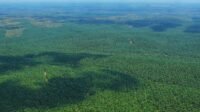PALMOILMAGAZINE, JAKARTA — The GRASS Project (Greening Agricultural Smallholder Supply Chains) officially concludes after six years of implementation. The closing ceremony, held at the Ritz-Carlton Mega Kuningan, Jakarta, on Tuesday, 18 November 2025, marked an important milestone to reflect on the project’s achievements while paving the way for future collaboration in sustainable agriculture.
The event brought together key stakeholders, including the Director for Oil Palm and Various Palms, Directorate General of Estate Crops at the Ministry of Agriculture, Baginda Siagian; BMZ Representative at the German Embassy in Jakarta, Angelika Stauder; the Kapuas Hulu Government representative, Ferry Suryanata; GIZ Indonesia Country Director, Hans-Ludwig Bruns; and GRASS Implementation Manager, Stephan Kitzbichler.
Six Years of Strengthening Indonesia’s Smallholders
Launched in 2019, GRASS is a collaborative initiative between GIZ and the Directorate General of Estate Crops, Ministry of Agriculture, funded by BMZ, the German Federal Ministry for Economic Cooperation and Development. Over the past three years—its second phase—the project focused on enhancing the resilience of independent smallholders in Indonesia, particularly in Kapuas Hulu, West Kalimantan.
GRASS was designed to address longstanding challenges faced by small-scale farmers, from low productivity and limited market access to increasing climate risks. Through an integrated and holistic approach, the project has succeeded in improving farmers’ livelihoods while advancing environmental sustainability.
Also Read:
Baginda Siagian highlighted the crucial role of land legality through the Smallholder Cultivation Registration (STDB). He emphasized that STDB serves as the main gateway to obtaining ISPO certification and is increasingly demanded by European regulations such as the EUDR, which requires transparent documentation from upstream to downstream.
Under GRASS, GIZ supported the government in strengthening sustainability standards. Moving forward, the initiative will transition into the Green Climate Fund (GCF) program, which will expand its coverage and duration—extending another 7–8 years and adding 5–7 new districts.
“Even as GCF expands into new areas, we hope the farmers who have been with us from the beginning will continue receiving guidance and will not be left behind,” Baginda said during the event.
Angelika Stauder reaffirmed Germany’s appreciation for its partnership with Indonesia, describing the country as a key actor in achieving global climate and biodiversity goals. She noted that GRASS aligns with Indonesia’s National Action Plan for Sustainable Agriculture and the Ministry’s strategic priorities.
“The primary goal is to strengthen the economic and environmental resilience of smallholders in global supply chains. A resilient supply chain is only possible when farmers’ livelihoods are resilient,” she said.
Kapuas Hulu representative Ferry Suryanata added that the local government has greatly benefited from GRASS and hopes similar future programs will follow.
“The challenge is shifting people’s mindset—producing commodities that meet quality and sustainability standards. On STDB, we have issued around 1,300 registrations for farmers,” he said.
Also Read:
Hans-Ludwig Bruns expressed appreciation for the project’s success, describing his recent visit to Kapuas Hulu as eye-opening. He emphasized that smallholders cultivating extremely small plots are the backbone of global commodity supply chains but remain vulnerable to price fluctuations, crop diseases, and climate change.
The project covered 30 villages in Kapuas Hulu—a region recognized as a UNESCO Biosphere Reserve—and achieved strong women’s participation, with two-thirds of beneficiaries being female.
“GRASS was designed to strengthen farmers’ resilience through climate-smart agriculture, diversified income, community empowerment, and collaboration with government and the private sector, supported by digital tools,” he added.
Stephan Kitzbichler highlighted practical interventions such as permaculture, agroforestry, intercropping, and smart agriculture. Beyond training, GRASS also supported farmers in securing land certificates to encourage sustainable production practices.
Digital innovation was another key component, with six training modules developed for palm oil, rubber, cocoa, coffee, agribusiness, and agroforestry.
To improve market access—particularly in remote areas like Kapuas Hulu—GRASS facilitated linkages with private off-takers, enabling long-term purchasing agreements.
“That will be the legacy of GRASS: farmers can sell their produce directly to processors,” he said.
Tangible Impact on the Ground
GRASS introduced multiple innovations, including:
- Agroforestry to enhance land sustainability and biodiversity;
- Permaculture to optimize natural resources;
- Farm diversification to expand income opportunities;
- Digital tools for farm recording, mapping, and marketing.
These interventions led to measurable outcomes, including an average 15% increase in smallholder income and improved access to formal markets. Environmentally responsible farming practices have also strengthened community resilience to climate change.
Marking an End—and a Beginning
The closing ceremony not only celebrated GRASS achievements but also marked the transition toward a new phase of international cooperation. From 2025 to 2032, GIZ and Indonesia will continue their partnership through the Green Climate Fund (GCF) program, focusing on climate adaptation and mitigation in West Kalimantan.
GCF will provide a stronger foundation for strengthening regional capacity through green policies, community empowerment, and low-emission agricultural innovations.
Toward Climate-Resilient Agriculture
The conclusion of GRASS represents a major milestone in Indonesia’s journey toward more climate-resilient, inclusive, and sustainable agriculture. With continued collaboration between national partners, local communities, and international stakeholders, efforts to support smallholders will not stop here.
Through long-term investment and shared commitment, West Kalimantan is poised to become a national model for green agricultural transformation—delivering social, economic, and environmental benefits for generations to come. (P3)

